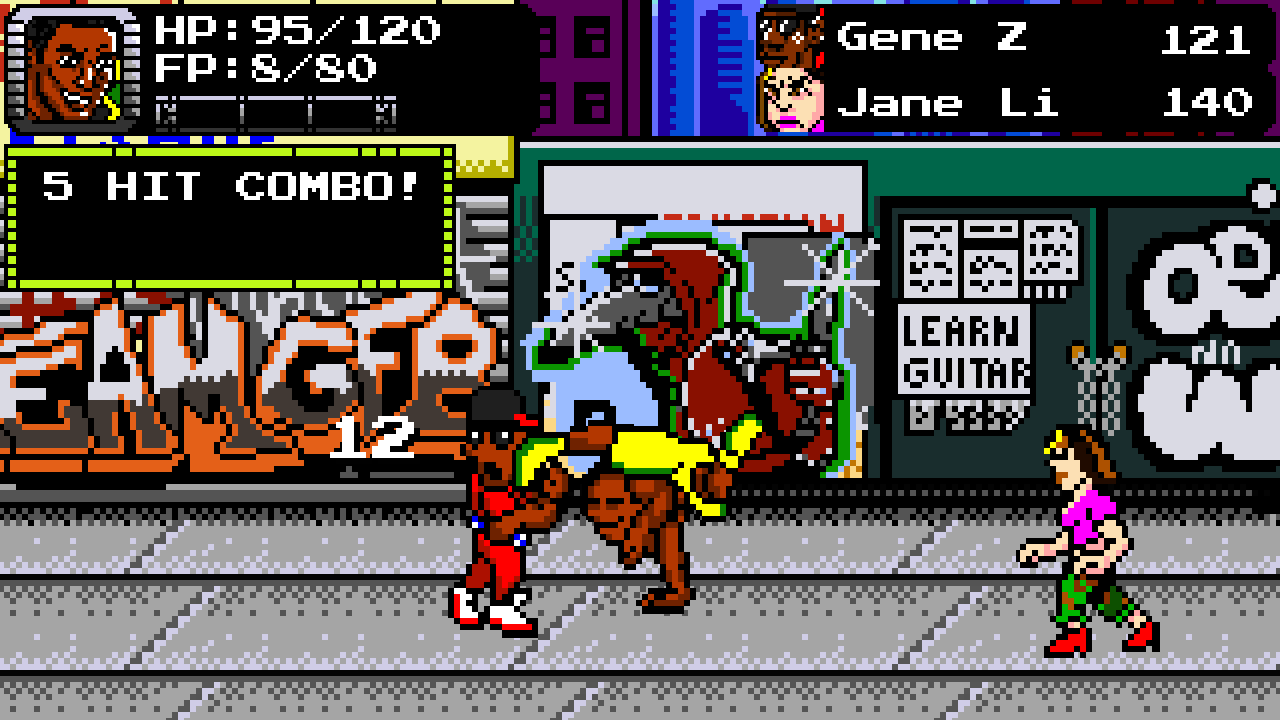Shonda Rhimes, creator of Grey’s Anatomy, is largely credited for the concerted push for people of color being represented on screen for primetime television in droves for a significant part of the last decade. At least on projects she’s lead, like Scandal and How to Get Away With Murder, that diversity is found in every facet of production. This translates to characters of color written less like stereotypes and more like the multifaceted folks they’re capable of being. It means classic plots about heroes’ journeys or dramatic love triangles all get to carry a valuable perspective not often sought after in fiction. It means dark skinned people get better lighting on their sets.
Though a completely different medium, it’s all I could think about when playing Treachery in Beatdown City. If you’ve ever stood earshot of Shawn Alexander Allen, founder of developer/publisher Nuchallenger, you won’t have to wait long before you hear him remarking about the very opposite of that Rhimes dynamic in video games. There may be numerous depictions of colorful urban American settings in video games, but they are rarely written, designed, and produced by people who actually live in them. They might have people of color as friends and neighbors, and can mimic what they’ve seen and have even come to love about certain cultures. But chances are, they are not from those environments.

If you could distill the long-awaited launch of Nuchallenger’s first big release into one, singular victory, it would be that they can finally demonstrate that a New York story written by New Yorkers of color can never be outdone. Of course, the Beatdown City in which the game’s protagonists, Lisa, Bruce, and Brad, pack the pain in isn’t New York City exactly. But East Fulton has all of the accouterments of The City That Never Sleeps. Blocks are tightly packed with the strangest assortments of business ever lined up next to each other. Never-ending construction seems to be on every street. And those streets are packed to the gutters with very aggressive weirdos.
The presentation of these folks is where that cultural perspective really shines through. Almost all of these enemies are scathing stereotypes, with a particular focus on privilege and social status. Gentrifying joggers, burly bikers, and sadistic private security contractors come in all shapes, genders, sexual orientations, and races. This feels deliberate, not just because of the fact that there are assholes of all races in every facet of society, but because villains of color are never allowed to be bad outside certain limits.
https://youtu.be/SW7T71Ath3Q
That’s not to say race isn’t a factor at all in Treachery. The opening scenes show an out of touch, white, billionaire mayor mocking Latinx viewers with fake Spanish. Bruce, the West Indian member of your group, is constantly surprising people when he tells them that he is actually a stock trader, and not a rapper or drug dealer. These are clear commentaries on interactions that happen to people in the real world every day.
The dialogue is well-written, and on occasion, truly laugh-out-loud funny. Your trio of face-beaters are a witty and fun bunch, always ribbing each other with zingers and funny little inside jokes. When trading barbs with the locals, several of them can give as good as they get. Even when they aren’t being purposefully quick, each of these characters are so well realized and consistent that you can’t help but like them all a little bit. Not only are they simply entertaining, but you’ve probably met several of these people before, in some form or another.

Treachery is also jam-packed with nerdy references. Pro wrestling, video games, comic books, and hip hop drench every technicolor corner of this game. But even they feel culturally specific. For example, save points in East Fulton are halal trucks run by a man named Farooq. Farooq, aka Ron Simmons, is a WWE Hall of Famer, and was the first ever African American to hold the World Championship Wrestling’s top title. Every wrestling fan respects Farooq. No one celebrates Farooq quite like black folks.
Treachery in Beatdown City, on top of it’s clever mechanical angle, is a game with a voice and cultural agency that is as necessary now as it has been in any point in the 40ish year history of video games. It would be enough to have a multicultural company make something safe and generic. But Shawn Allen and his compatriots at Nuchallenger went out on a limb to create something truly risky and inspired.






